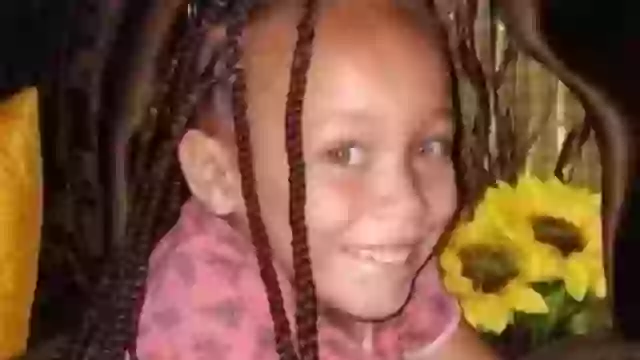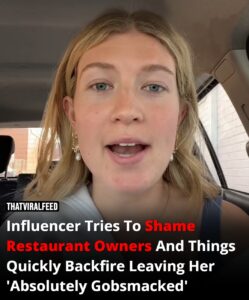In a harrowing case that has sent shockwaves through South Africa and beyond, the mother of missing six-year-old Joshlin Smith has been sentenced to life in prison after being found guilty of selling her daughter to a traditional healer for a mere £800. The child has not been seen since her disappearance in February 2024, and her fate remains heartbreakingly unknown.
A Small Town Torn Apart
Joshlin Smith lived in Saldanha Bay, a quiet coastal town about 100 kilometers north of Cape Town. The community was tight-knit, where neighbors knew each other and children played freely. But on the evening of February 19, 2024, the town was shaken when Joshlin was reported missing by her mother, Racquel “Kelly” Smith.
What began as a missing child case quickly evolved into a disturbing and deeply unsettling criminal investigation.
A Mother’s Double Life
At first, Kelly Smith appeared to be a desperate, grieving mother, pleading with the public and authorities to help find her daughter. Posters bearing Joshlin’s innocent face flooded social media, and the police launched a massive search operation involving sniffer dogs, drones, and even navy personnel.
But suspicions began to mount when inconsistencies emerged in Kelly’s statements. Friends, neighbors, and family members noted strange behavior. In an emotional press conference, a relative tearfully admitted they had heard Kelly mention “selling” her daughter weeks prior. Police soon began to question whether this was truly a case of child abduction — or something far more sinister.
The Shocking Revelation
What investigators uncovered was unthinkable: Kelly Smith had conspired with her boyfriend, Jacquen Appollis, and their friend, Steveno van Rhyn, to sell Joshlin to a traditional healer, or “sangoma.” The supposed transaction was arranged for 20,000 South African rand — roughly £800 — with the horrific suggestion that Joshlin’s body parts, specifically her eyes and skin, were to be used in traditional rituals.
In court, it was revealed that Kelly had a long history of drug addiction and had been under the influence of methamphetamine at the time. But the judge firmly rejected drug use as an excuse for what he described as a “calculated and evil betrayal of maternal duty.”
Trial and Convictions
During the trial, which drew large crowds and had to be held in a local sports center to accommodate public interest, over 30 witnesses took the stand. Among them was a neighbor who recounted how Kelly openly discussed “getting money” for her daughter. A local pastor also testified that she had mentioned selling all her children, quoting a chilling price of 20,000 rand each.
Judge Nathan Erasmus was unsparing in his sentencing. He handed down life sentences to Kelly Smith, Appollis, and van Rhyn, condemning their acts as heinous and devoid of any remorse. The courtroom erupted in applause as the sentences were read, reflecting the public’s fury and relief that justice had, in part, been served.
The Child Still Missing
Yet despite the sentencing, the most important question remains unanswered: Where is Joshlin?
Despite extensive efforts by law enforcement and private citizens alike, no trace of the child has been found. There have been unconfirmed reports of sightings, but none have led to her recovery. Authorities fear she may have been taken across the border and potentially trafficked further afield.
Police continue to pursue leads, and the case remains open. A reward of one million rand is still being offered for information leading to Joshlin’s return.
A Broader Crisis
Joshlin’s disappearance is not an isolated tragedy. South Africa has seen a dramatic increase in kidnappings and child trafficking in recent years. According to the South African Police Service, over 17,000 kidnappings were reported during the 2023/2024 financial year alone.
In many rural or underprivileged areas, a deadly combination of poverty, drug abuse, and cultural superstition creates conditions ripe for exploitation. In some communities, belief in traditional rituals involving human body parts persists — a grim reality that underscores the importance of public education and stronger child protection laws.
Aftermath: A Family Torn, a Nation Mourns
In the wake of the verdict, Joshlin’s surviving siblings have been placed in the care of their grandmother, Amanda Daniels. She has expressed devastation and anger, not only at her daughter’s actions but at the system that failed to protect her granddaughter.
“The law may have done its part, but I want to bring Joshlin home. I want answers,” Daniels said outside the courtroom.
Community vigils and marches have been held in Joshlin’s name, with candlelight ceremonies and prayers continuing each week in Saldanha Bay. Her photo, once a symbol of hope, now stands as a haunting reminder of what was lost.
What Comes Next?
Although justice has been served in court, the case is far from over. The search for Joshlin continues, and the haunting possibility remains that she may never be found. But the public outcry and media attention have sparked renewed calls for governmental reform, better oversight of children in vulnerable homes, and more aggressive action against human trafficking.
Meanwhile, Joshlin’s face continues to appear in news broadcasts, on flyers, and across social media. Her story has united South Africans across racial and economic divides, each person sharing the same desperate hope — that one day, Joshlin Smith will be found alive.











